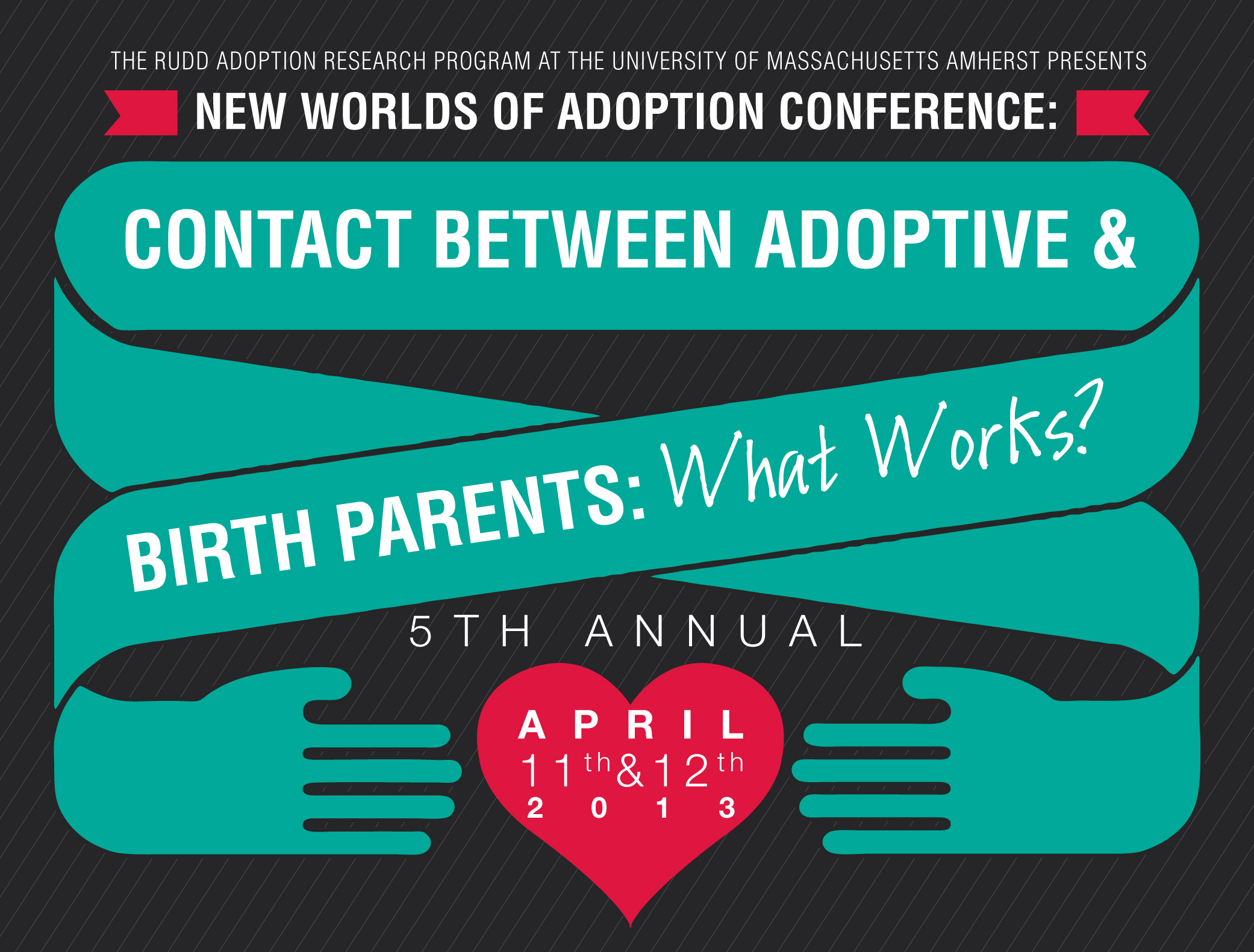Event Title
Contact and Knowledge in the Adoption Kinship Network: What Benefits Network Members Most
Location
UMass Amherst
Start Date
11-4-2013 1:00 PM
End Date
11-4-2013 2:00 PM
Apr 11th, 1:00 PM
Apr 11th, 2:00 PM
Contact and Knowledge in the Adoption Kinship Network: What Benefits Network Members Most
UMass Amherst

Comments
Contact and Knowledge in the Adoption Kinship Network: What Benefits Network Members
Most Martin, Neiderhiser, Leve, Shaw, Ganiban, Reiss
The right amount and quality of openness in adoption may vary from one placement to another (Grotevant, et al. 1994). Still, greater openness has been associated with better adjustment following a placement for birth parents and greater satisfaction with adoption process for all members of the adoption kinship network (Ge, et al., 2008). While multiple aspects of openness have been shown to differentially affect members of the adoption kinship network (e.g. Cushman, et al., 1997; Dunbar et al., 2006) no study has examined these aspects using multivariate techniques to estimate the relative influence of different aspects of openness on psychological outcomes. Using the Early Growth and Development Study (EGDS) sample of adoption linked birth and adoptive parents (N= 561) we can regress different aspects of openness in adoption reported shortly after placement on psychological outcomes for network members 18 months post-placement (these include depression, anxiety, adjustment to life after placement, and satisfaction with the adoption process).
Out of the four outcome measures satisfaction with the adoption process was correlated with the most aspects of openness for all network members. Regression analyses showed Birth Mother satisfaction was positively and significantly associated with greater choice regarding degree of openness (p < .05) and a better impression of the Adoptive Mother’s mental (p < .10) and physical health (p < .05). Birth Father satisfaction was negatively associated with knowing the Adoptive Mother’s reasons for adopting (p < .001). While better adjustment and mood were positively correlated with aspects of openness no association between openness and these outcomes was significant in the multivariate tests for birth parents. Regressing openness aspects on Adoptive Mother satisfaction with the adoption process yielded positive associations with greater frequency of face-to-face contact with (p < .05) and receipt of gifts (p < .10) from the birth mother, and greater knowledge of the birth mother’s mental health (p < .05), her family’s health history (p < .10), and reasons for placing the child (p < .001). Regarding Birth Father openness Adoptive Mother satisfaction was positively associated with having choice in the level of openness (p < .10), greater knowledge of his physical health (p < .10) and his ethnic/cultural background (p < .05), and her impression of his mental health (p < .10). Regressing openness aspects on Adoptive Mother anxiety yielded positive associations with greater phone contact with the Birth Mother and receipt of more letters/emails from the Birth Father and a negative association with more face-to-face contact with the Birth Mother. Regressing openness aspects on Adoptive Father satisfaction yielded positive associations with the amount of face-to-face contact (p < .05) with the Birth Mother, knowledge of her mental health (p < .10), her reasons for adoption (p < .10), and knowledge of the Birth Father’s physical health. No other regressions showed significant associations.
Importantly, each network role uniquely affects the others. The only overlap in patterns of significance for the different aspects of openness is between the adoptive mother and adoptive father. The patterns may show differences in the impact of the developmentally salient task of starting a family on the different members of the adoption kinship network. Overcoming infertility by honorably accepting the responsibility for the offspring of others, relinquishing one’s offspring and the responsibilities for them in the best way one can, and working out the nature of network relationships through openness likely contribute to these pattern differences for network members. In-depth interviews with all members of many networks is necessary for understanding the nature openness’ impact on satisfaction within the network.